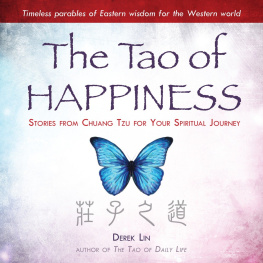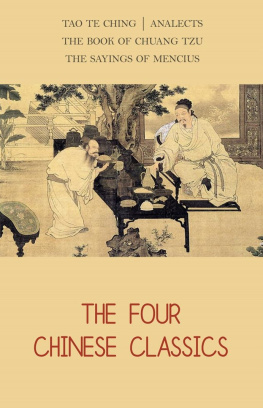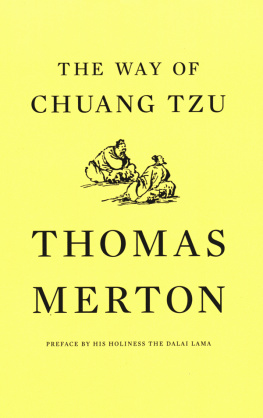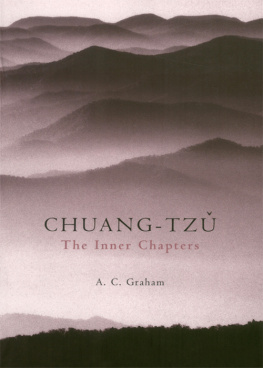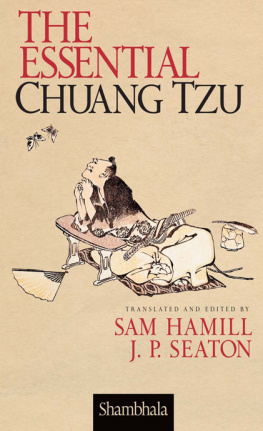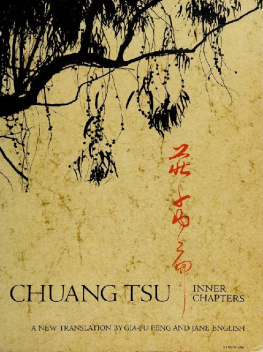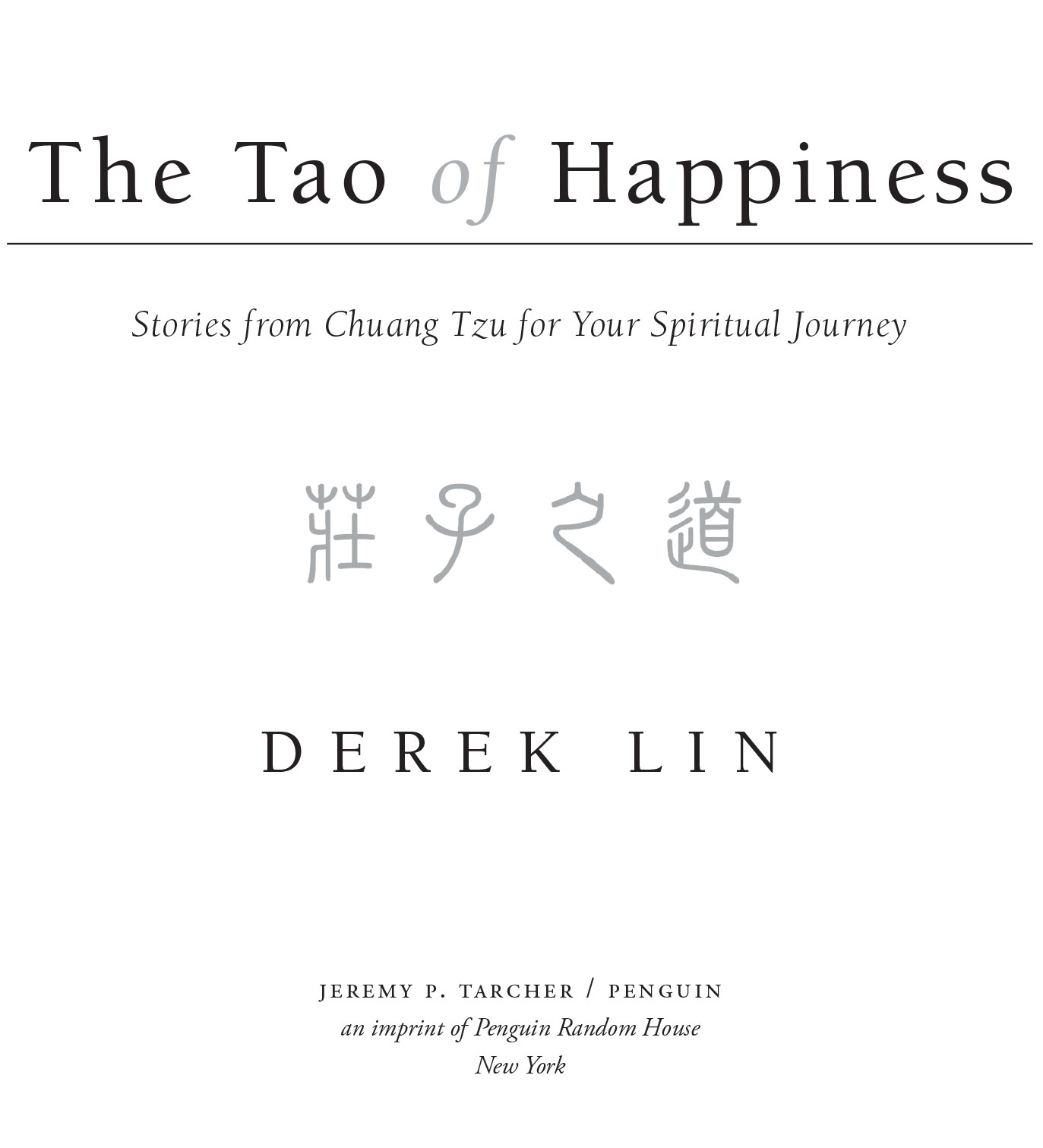JEREMY P. TARCHER/PENGUIN
Penguin supports copyright. Copyright fuels creativity, encourages diverse voices, promotes free speech, and creates a vibrant culture. Thank you for buying an authorized edition of this book and for complying with copyright laws by not reproducing, scanning, or distributing any part of it in any form without permission. You are supporting writers and allowing Penguin to continue to publish books for every reader.
Most Tarcher/Penguin books are available at special quantity discounts for bulk purchase for sales promotions, premiums, fund-raising, and educational needs. Special books or book excerpts also can be created to fit specific needs. For details, write: SpecialMarkets@penguinrandomhouse.com.
Lin, Derek. 1964 author.
The Tao of happiness : stories from Chuang Tzu for your spiritual journey / Derek Lin.
1. Tao. 2. Taoism. 3. Spiritual lifeTaoism. 4. Zhuangzi. I. Title.
Introduction
If you have not encountered Chuang Tzu before, you are in for a treat. He was the sage who stood apart from all others in Chinese history. He was a unique presence, a great mind like no one before or since.
If you have encountered Chuang Tzu before in other books, you may find that this book offers a different approach by focusing on his stories, rather than on historical footnotes or scholarly citations. In Chinese culture, Chuang Tzu is not an academic subject to be analyzed but a source of inspiration and insight.
The name Chuang Tzu (Zhuangzi in the Pinyin system) means Master Chuang. His full name was Chuang Chou (Zhuang Zhou), and he lived about twenty-four hundred years ago, during the Warring States period. It was a time of death and destruction due to widespread warfare. It was also a time when many schools of philosophy emerged, perhaps as a response to the extreme chaos.
Chuang Tzu quickly distinguished himself and became well known for his deep understanding and sense of humor. His mastery was such that he could explain the Tao with simple stories. His humor was such that he could see the joy in ordinary things. He taught his students about carefree wanderingthe path of moving through life with a free and happy heart, regardless of how turbulent the journey might be. He regarded this as the Tao of true happiness.
His teachings were collected in the classic known as Nan Hua Ching (Nan Hua Jing), and it had a tremendous impact on Chinese culture. Many common sayings and expressions in modern Mandarin trace directly back to it. The concepts and ideas within its pages are actively studied and appreciated today. As long as Chinese culture lives, the legacy of Chuang Tzu will also endure.
It is time for us to join in on the fun. Chuang Tzus wisdom is not just for the Chinese, but for all humanity. We may not have the instability or the clash of massive armies in the Warring States period, but we definitely have a lot of stress and tension in these modern times. Many of us find ourselves fighting little battles on the personal front just to get through the day. We can definitely benefit greatly from Chuang Tzus teachings.
The best way for us to learn also happens to be the easiest. Chuang Tzu loved to teach through stories. The tales he crafted drew his students in, captured their imagination, and conveyed the Tao in unforgettable ways.
As you take in the stories, you will see that Chuang Tzu had a unique perspective on just about everything. He rejected conventional concepts. He took numerous notions to a level beyond the mundane to reveal how different things looked in the Tao. When people mourned the death of a loved one, he showed them that it made more sense to celebrate a life well lived. When philosophers talked about living with no particular goals or traveling with no particular destinations, he described the spiritual journey as the sacred quest for the Taoa journey full of meaning, undertaken with definite direction and purpose.
This spiritual journey is exactly what we will delve into with this book. It is the great truth behind Chuang Tzus idea of carefree wandering. It is also his ultimate teaching, where the process of learning about the journey is a journey in its own right.
So... what is the nature of Chuang Tzus spiritual journey, and how do we prepare for it? What are the challenges along the way? How do we get the most out of the trip? What happens when we get to the destination? Let us begin by asking these questions... and let the stories of Chuang Tzu bring us the best answers.
PART 1
Departure
Before we embark on the spiritual journey, we should take some time to contemplate the journey itself. Tao sages always know what they are getting into and never rush into anything blindly. Let us emulate them by understanding the nature of the journey and mentally preparing ourselves:
- Chuang Tzu likens the spiritual journey to the long flight of a giant bird high in the sky. This flight can be seen as the lifelong path of Tao cultivation, the quest of learning and exploration, and the sacred task that you are in this world to accomplish.
- Be ready for the mind-expanding effect of the Tao. The teachings of Chuang Tzu will show you a whole new world and open up your spiritual dimensions dramatically. Once you are immersed in this vast ocean of wisdom, you will not be able to go back to the more limited perspective.
- There may be those who denigrate your efforts as useless. When dealing with such people, hold on to the thought that your path is unique, just as you are unique. Nothing is absolutely useless in the Tao, and your journey will prove to be supremely useful, for it will enable you to change your world. This change is a gift that only you can bring.
- The outcome of your journey will, to a large degree, depend on how you use the Tao. Some will use it only for philosophical discussions or playing with ideas, but you must go far beyond that level. Use the Tao to do great work and propel yourself to go the distance. The Tao is unlimiteddo not limit yourself when you tap into it.
The Flight of the Peng Bird
In the Northern Sea, there is a giant fish. Its name is Kun. Its size is incredibly large. No one knows how many thousands of miles its length measures.
The Kun fish is able to transform into a bird, known as Peng. The Peng bird is also incredibly large. No one knows how many thousands of miles its wingspan measures.

